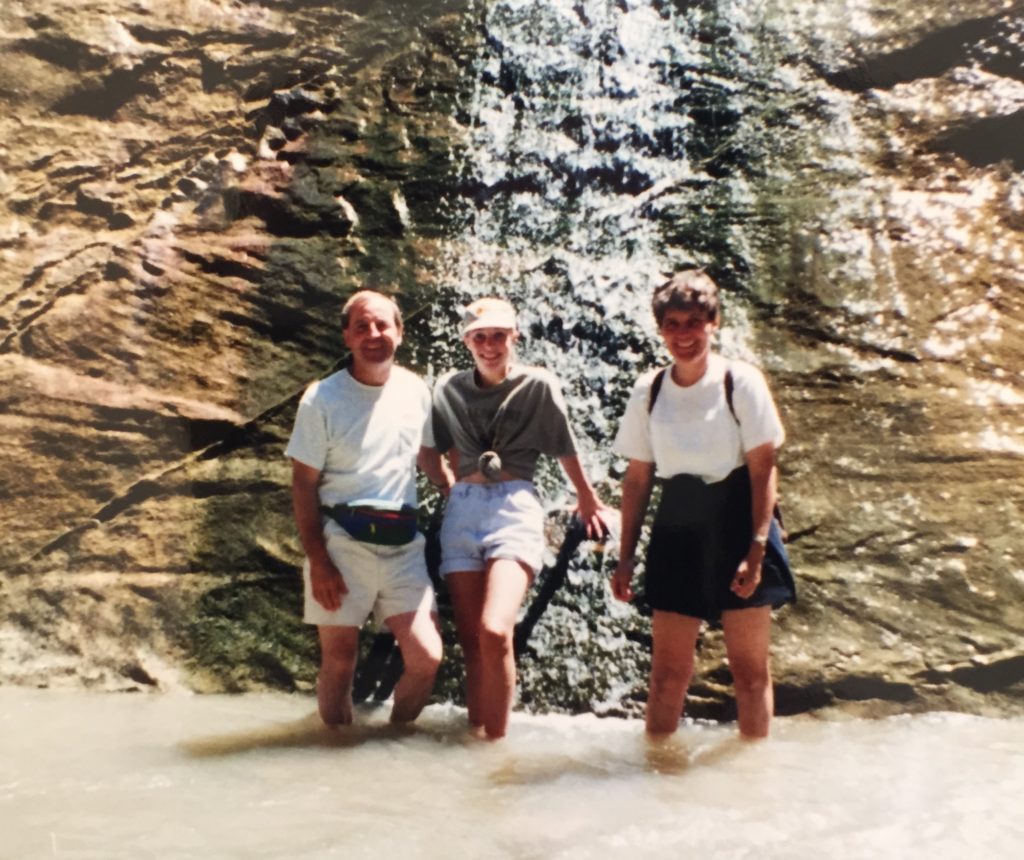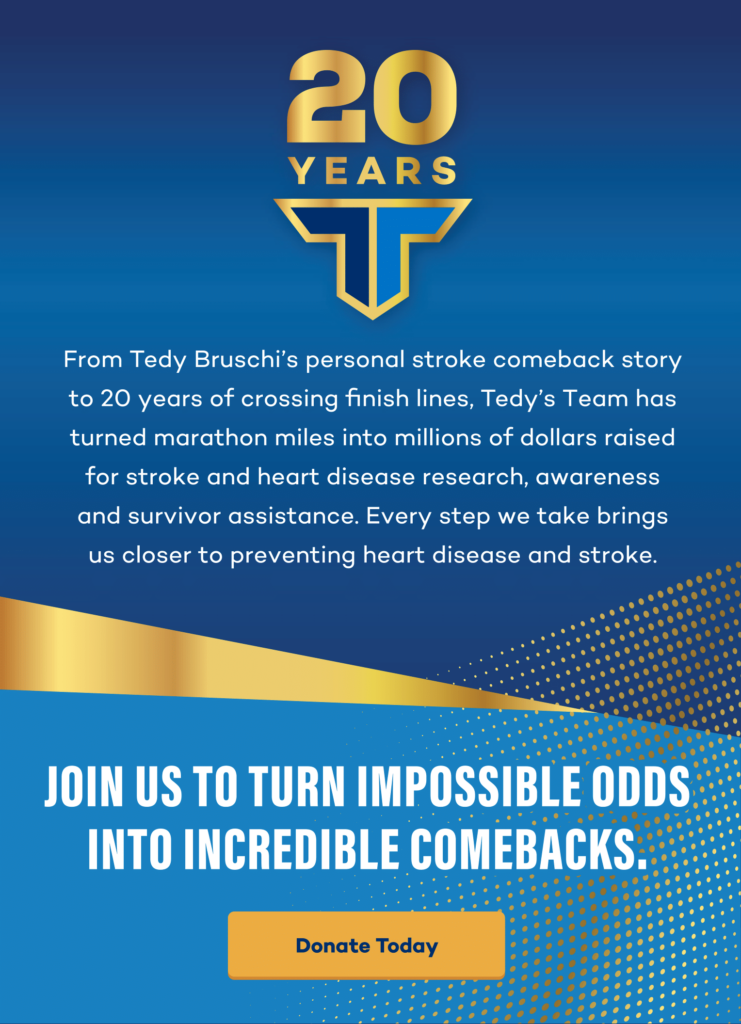
Christine and her parents on a hike prior to their strokes.
Tedy’s Team alumni, Christine Pelletier, is taking over our blog this week to share her personal journey as a caregiver, and why she wants you to learn the warning signs of stroke.
Stroke has been a part of my day to day life for 22 years, which adds up to more than half of my life. I have gotten to the point that I barely remember life without stroke. The memories of my parents as fully functioning adults are almost fully faded. I try to cling to the sound of my dad’s voice or my mom’s laugh, but after all this time, I only hear them in my dreams. The reason why I share my story is because it is unique, and if it is able to help one person, then my parent’s heartbreak is not for lost. I am fortunate enough that both of my parents are physically here with us today. They are both stroke survivors and my stroke heroes. I feel so blessed that they survived the odds, but both were left prisoners in their own body.
My stroke story began when I was a junior in high school and my father suffered a cerebral hemorrhage causing a stroke. The surgeon told my mother and I that he had a 10% chance of surviving. My family kept a bedside vigil with our eyes glued to a monitor tracking the pressure in his brain. So much over the first few days was a matter of life or death. What started as a medically induced coma, turned into a coma due to his stroke. For a little over two months, my mother and I spent hours upon hours bouncing between the hospital waiting room and the ICU. Every day was a gift that came with many unknowns. My dad would survive one hurdle, just to be thrown another. After almost three months in the hospital, my dad was released to a local rehab center.
For months, my mother made the trek to Westborough to be my dad’s biggest cheerleader. Eventually, he was released to in-home rehab with visiting nurses. All my mother had ever wanted was her partner in crime back. I too wanted the same, I wanted my dad back. My mother worked tirelessly to rehab my dad. She drove to Boston two to three days a week to try experimental therapies at the VA Medical Center. She sought advice and treatment from acupuncturists. She researched and travelled far and wide to different specialists using different rehabilitation tools. My mother spent the last five quality years of her life trying desperately to bring my dad back. After the days, weeks, months, and years that my mom gave to my father’s rehabilitation, the stroke left him aphasic, with significant spasticity on his right side, and generally severely mentally disabled.
The unfortunate twist to this story comes five years and two months after my dad’s stroke. At the time, I had moved out to Colorado to attend college. Even as disabled as my father was, my mom would pack the two of them up and travel out to visit me regularly. My mom and dad had travelled to Denver to visit me for the Thanksgiving holiday. While running some errands, my mother collapsed. We were laughing and joining in one moment and in the blink of an eye she was laying on the cement floor in Home Depot. What appeared to initially be a seizure was actually an aneurism that had ruptured in her brain. Once again, I was watching one of my parents clinging to life. I spent days watching monitors beep and buzz worrying that each moment may be my last with her. She spent a couple months in and out of a coma. Eventually she was released to a rehabilitation center in Denver. The fact that my mother was in Denver with me and that she was unable to physically get onto a commercial flight to travel back to Massachusetts made a difficult situation almost impossible. After fighting with insurance, we eventually got approval for a medical flight back to Hanscom Air Force Base for my mom.
Upon my mother’s arrival back in Massachusetts, she was accepted a patient at the same rehabilitation facility where my father was rehabbed. I now found myself making the trip to and from Westborough with my dad in tow, cheering my mom through rehabilitation. This time around, everything was different. My mother fought every aspect of rehab. For a couple of months, we tried tirelessly to get her to eat, speak, to even try to move her legs and she adamantly refused most of it. The brain damage from the stroke had been severe enough to take all the fight out of my mother. No matter how hard we fought for her, rehab eventually had to release her to a nursing home. My mother has resided in a nursing home since she was 51 years old. She too was left aphasic, unable to walk, and severely mentally disabled. I look at my mom to this day and I wonder where she went. Her physical body is here, but I don’t know where my mother is. Words cannot explain how she has been left. Eighteen years later and it still feels like a cruel joke.
I share my story because it is unique. I share my story because I want to bring stroke awareness to the forefront of people’s minds. I share my story because an ounce of prevention can be worth a pound of cure. I share my story because at the age of 36, I learned that I had a hole in my heart, known as a patent foramen ovale (PFO). In many cases, a PFO will go undiagnosed and not cause any problems; however, I discovered mine while scuba diving. After experiencing several episodes of decompression sickness, it was suggested that I go for some testing. After confirming that I had a PFO, taking into consideration my family history, it was decided that it would be best to have it repaired. In the blink of an eye, I went from the care giver to the one needing some TLC.
It has been two years since my surgery and I continue to be a stroke advocate for awareness to prevent, treat, and beat stroke. I run races, I share my story, and I live every day to try to raise awareness for stroke. I can only hope that my efforts save a life or ensure that people recognize the warning signs to avoid death and disability.
Please learn the warning signs of stroke and remember to #BeFast!
Back to All Blog Posts